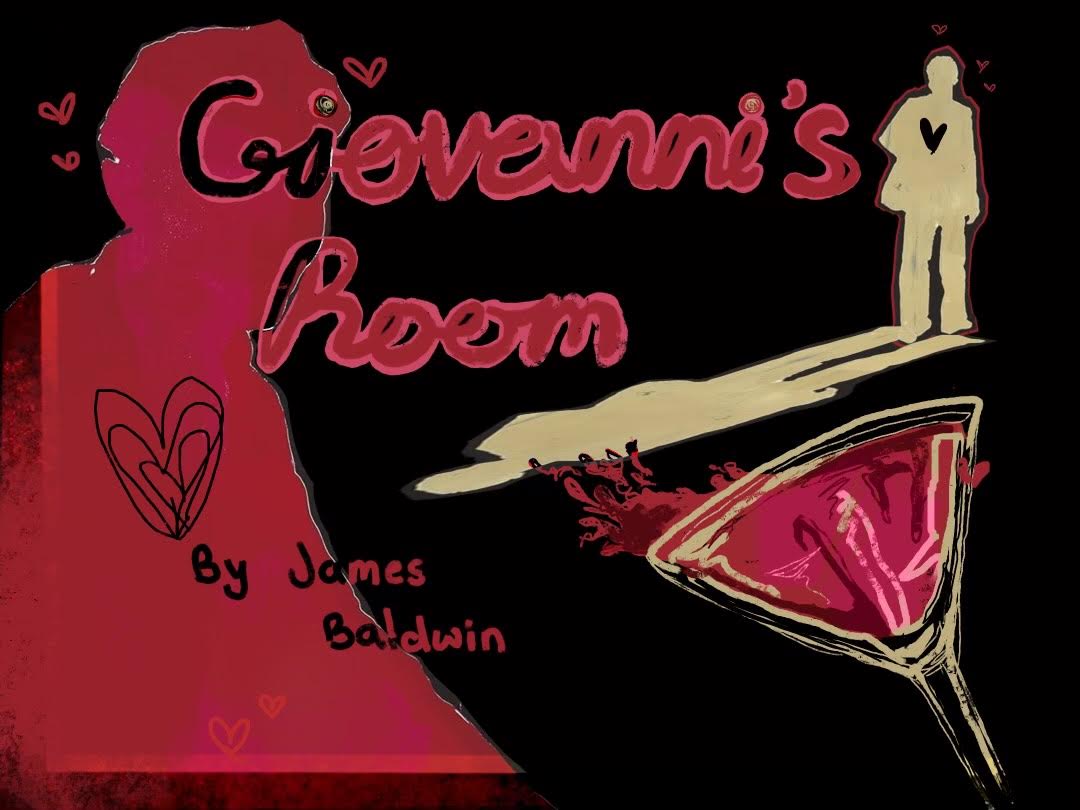Denied at first by Baldwin’s publishers, it was unclear if “Giovanni’s Room” would ever make it out into the world. However, in 1956, James Baldwin’s novel, “Giovanni’s Room,” was triumphantly published. The novel was revolutionary as it openly portrayed two men falling in love. Baldwin, a Black, gay man himself, related deeply to the queer community and sought to explore his own experiences with homophobia. Further, he was able to use his experience living abroad in France as an American within the novel, as the setting is France. Though it is an entirely fictional work, Balwdin’s identity and past are at the forefront of this novel.
James Baldwin was a prolific writer who wrote many beloved novels, including “Notes of a Native Son” and “The Fire Next Time.” Baldwin was an extremely impactful writer, not only because of his lyrical style of writing, but also the unique exploration of identity in his novels. In the article, “James Baldwin’s Sexuality: Complex and Influential,”, by NBC News, Michelle Gordon, an African American studies professor at Emory Univeristy, said, , “‘Being Black in America. Being Black and gay in America. Being a Black American in Europe. Being Black and gay in the world. It all gives him outsider status, which allows him the ability to see the world so clearly, because he did not quite fit.’”
“Giovanni’s Room” is the story of David, an American, and Giovanni, an Italian immigrant, in France. Giovanni and David meet at a bar and quickly fall in love. As their relationship grows, David ends up living with Giovanni in his ‘room.’ This room becomes an allegory for not only their strained relationship, but also for the closet and the repression that queer people must submit themselves to. The more time David spends in Giovanni’s room, the more trapped and isolated he feels. His feelings build up inside him as he takes out his frustrations on the world and his situation on Giovanni. Their love story ultimately ends in tragedy as the lovers part ways.
 (Source: Unsplash.com)
(Source: Unsplash.com)
One of the main themes of the book is self acceptance versus shame. According to an article in the New York Times, “Baldwin asks, in ‘Giovanni’s Room,’… Do we know how to live in a purely queer world not defined by resistance or self-hatred?” David, although in love with Giovanni, also has internalized homophobia. This is a product of David himself, but also the world he lives in. In the novel, David tells Giovanni that two men cannot make a life together. Giovanni argues that David, who is clinging to his heteronormative views of manhood, is the reason they cannot be together. However, David leaves Giovanni and vows never to return.
According to an article in The Guardian, “the whole novel is a kind of [the] anatomy of shame, of its roots and the myths that perpetuate it, of the damage it can do.” David allows his shame to poison his relationship with Giovanni, and ultimately it is the downfall of them both.
Baldwin writes a compelling narrative filled with morally gray characters and a love story that is equal parts beautiful and sickeningly destructive. David’s self hatred and shame permeate the novel while his narration adds a level of intensity and conflict that intensifies the plot. He is in love, but unable to allow himself to be. Baldwin even uses other side characters to try and help David overcome his shame or concede to it, weaving a beautiful narrative about queer love during a time when this kind of love was illegal in America and much of the world.
The reader hopes for David and Giovanni to miraculously find some happily ever after, that even against all odds and their societal constraints they would manage to turn that room into a safe haven. Baldwin knows that is not reality, so he shows us that David is unable to deal with his shame and thus the couple must part ways.
What Baldwin demonstrates is that living in the closet, hidden away from society, is no way to exist in the world despite any safety it provides for you or the one you love. Baldwin’s novel is a mere 176 pages, but packs a gut punch for the reader and is an imperative read due to its necessary themes.



























